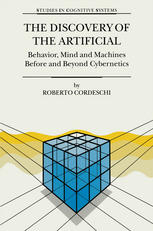

Most ebook files are in PDF format, so you can easily read them using various software such as Foxit Reader or directly on the Google Chrome browser.
Some ebook files are released by publishers in other formats such as .awz, .mobi, .epub, .fb2, etc. You may need to install specific software to read these formats on mobile/PC, such as Calibre.
Please read the tutorial at this link: https://ebookbell.com/faq
We offer FREE conversion to the popular formats you request; however, this may take some time. Therefore, right after payment, please email us, and we will try to provide the service as quickly as possible.
For some exceptional file formats or broken links (if any), please refrain from opening any disputes. Instead, email us first, and we will try to assist within a maximum of 6 hours.
EbookBell Team

4.7
56 reviewsThis series will include monographs and collections of studies devoted to the investigation and exploration of knowledge, information, and data processing systems of all kinds, no matter whether human, (other) animal, or machine. Its scope is intended to span the full range of interests from classical problems in the philosophy of mind and philosophical psychology through issues in cognitive psychology and sociobiology (concerning the mental capabilities of other species) to ideas related to artificial intelligence and to computer science. While primary emphasis will be placed upon theoretical, conceptual, and epistemological aspects of these problems and domains, empirical, experimental, and methodological studies will also appear from time to time. The present volume offers a broad and imaginative approach to the study of the mind, which emphasizes several themes, namely: the importance of functional organization apart from the specific material by means of which it may be implemented; the use of modeling to simulate these functional processes and subject them to certain kinds of tests; the use of mentalistic language to describe and predict the behavior of artifacts; and the subsumption of processes of adaptation, learning, and intelligence by means of explanatory principles. The author has produced a rich and complex, lucid and readable discussion that clarifies and illuminates many of the most difficult problems arising within this difficult domain.